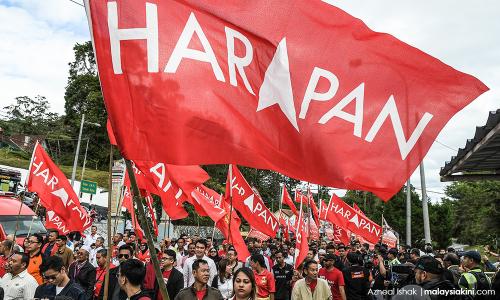One year of false hopes
COMMENT | After a year of Pakatan Harapan rule, the euphoria that followed the May 9 general election is rapidly evaporating: The anti-kleptocracy campaign appears to have been selective as crony capitalism is again the name of the game especially with regard to the mega-projects up for grabs and Dr Mahathir Mohamad’s penchant for privatisation holding sway.
Behind the anti-Najib drama, the Pakatan Harapan government has been pushing through multi-billion-ringgit projects that had been started by the Najib Abdul Razak regime but with just as little transparency. The procrastination in the implementation of urgent reforms promised in Harapan's GE14 manifesto is unacceptable.
There have been engagements with civil society but no improvement in promised reform of repressive laws. The refusal to release the Council of Eminent Persons' report to which civil society had contributed is especially inexcusable.
The new Harapan government had pledged to wipe out kleptocracy and this promise was key to the victory at GE14. They have disappointed the people of Malaysia and especially Sarawakians who have seen the wealth of their state sucked dry by the rapacious greed of the kleptocrats there. The Harapan government has not yet acted to make the former chief minister Taib Mahmud declare all his assets and those of his spouse and family.
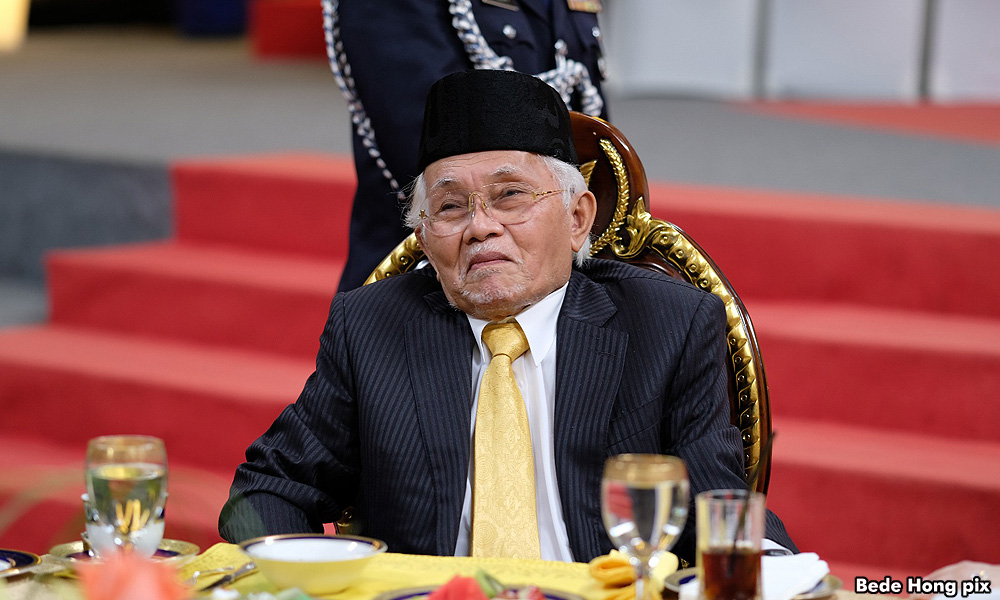
The Harapan government has shown us that where there is a political will in getting to the root of the 1MDB scandal, there is a way to rid Malaysia of corruption and kleptocracy across the board. However, by letting off his long-time ally in Sarawak, Taib Mahmud, arguably the richest man in Malaysia, the prime minister makes his campaign against former prime minister Najib look like a personal vendetta. The prime minister has failed to lead by example and declare his assets and those of his spouse and children’s.
So far, the new Harapan government has not spelt out their fundamental difference in economic policy from the old BN regime. What we have heard so far is the alarming news of the return of the old discredited Mahathirist policies, namely, privatisation of our national assets in the name of bumiputera-ism and the revival of the national car, Proton 2.0.
The PM has said that sovereign wealth fund, Khazanah will be privatised for the benefit of the bumiputera. Malaysians need to be reminded that during the financial crisis of 1997/98, it was Khazanah that had stepped in to take over the assets of the failed companies owned by bumiputera crony capitalists in Renong, MAS and TRI. After taking over the assets, Khazanah revamped these GLCs with professional managers and better rules of governance. Thus, Khazanah is successfully achieving its purpose of creating a sovereign wealth fund for the benefit of all Malaysians. Its expressed purpose never had been to be privatised to bumiputera crony capitalists.
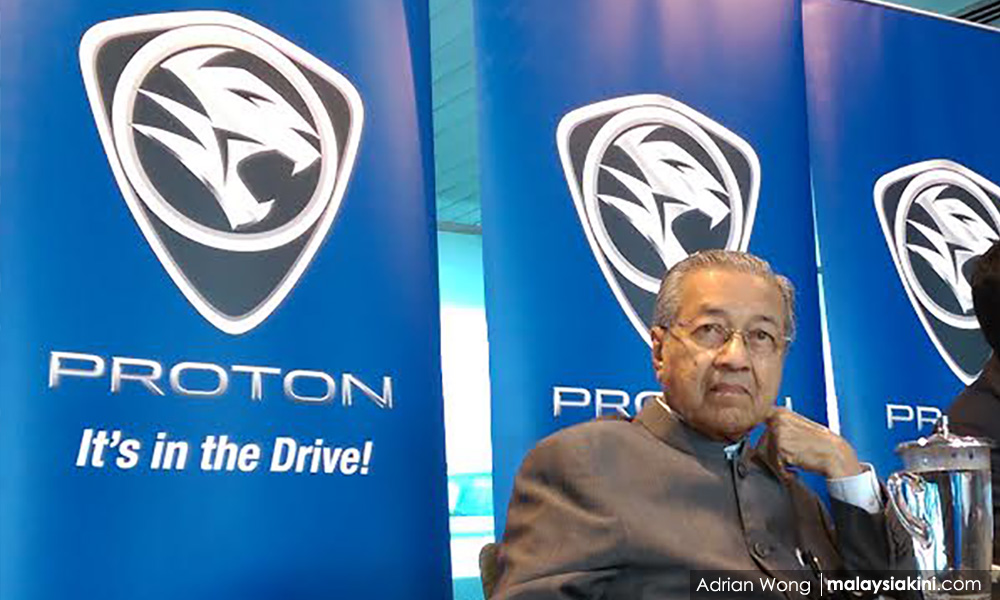
The prime minister also announced the revival of yet another national car, or Proton 2.0. After the fiasco of Proton 1.0 and the huge cost to Malaysian taxpayers, our public transport system and Malaysian consumers, it is unbelievable that such a failed enterprise could be supported by a Harpan leadership full of former critics of the first Proton project. Another national car project will surely fail with further losses to the national coffers and we will have to underwrite the losses. The Harapan government won’t have 1MDB to blame for that anymore.
Behind the smokescreen of the anti-Najib kleptocracy campaign, the Harapan government has been pushing through multi-billion-ringgit projects that had been started by the Najib regime but with just as little transparency, showing that the difference between BN and Harapan is who gets to handle and control these multi-billion projects, namely, the questionable ECRL, Bandar Malaysia and the Penang Transport Master Plan projects.
As far as the ECRL is concerned, the Harrapan government has not fully recovered the money lost in the overpriced contracts. Furthermore, despite the realignment of the ECRL route through Negri Sembilan, there is no mention of any new feasibility study or new EIA being done. How did the non-elected Daim Zainuddin single-handedly achieve all these new agreements without the need for a team of professionals?
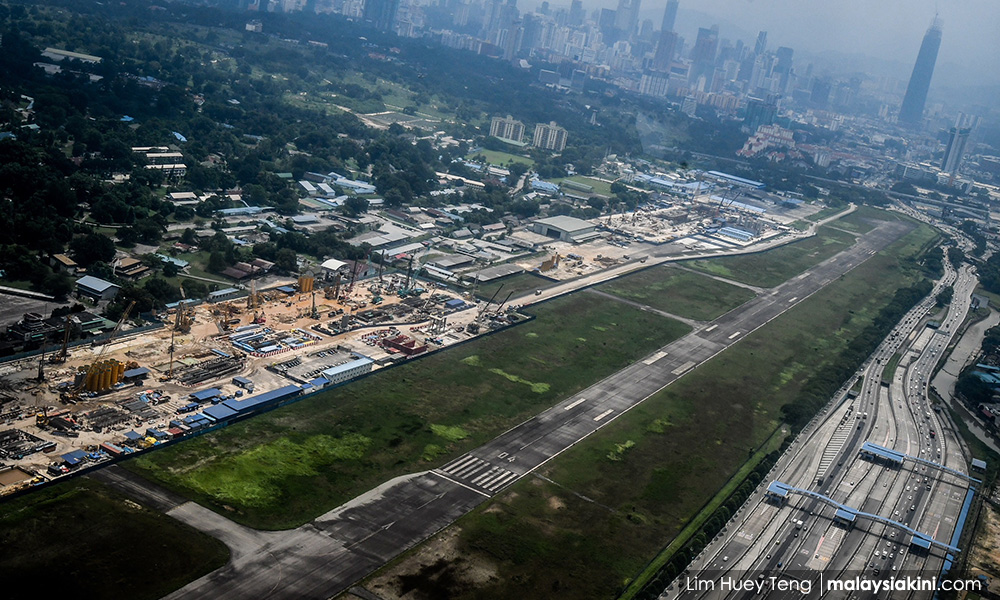
As for the Bandar Malaysia project, the Najib government had terminated the contract with the Malaysia-China consortium because of non-fulfilment of the contract by the purchasers. Mahathir has reinstated the agreement with the consortium only having to pay a further RM500 million, in addition to the original RM741 million deposit. As with all the other privatisation plans of the new prime minister, why couldn’t Bandar Malaysia initiate the master plan itself and then sell the land to be developed according to this plan and make all the profits itself instead of what the private consortium is going to make?
Then the Penang Transport Master Plan costing RM46 billion involves the reclamation of three man-made islands but gives no indication of how much the cost of reclamation would be, the time period the reclamation will take place nor feasibility reports or environmental impact assessments (EIA) of the project.
Using the excuse of government debt to delay local government elections which had been suspended in our country since 1965 is not acceptable. It is a simple matter of abolishing a provision under the Local Government Act 1976 and reviving the Local Government Election Act in order to introduce local government elections. If the Harapan government is prepared to see billions going down the drain with the revived Proton 2.0 project, don’t tell us there is no money for running local council elections. Please.
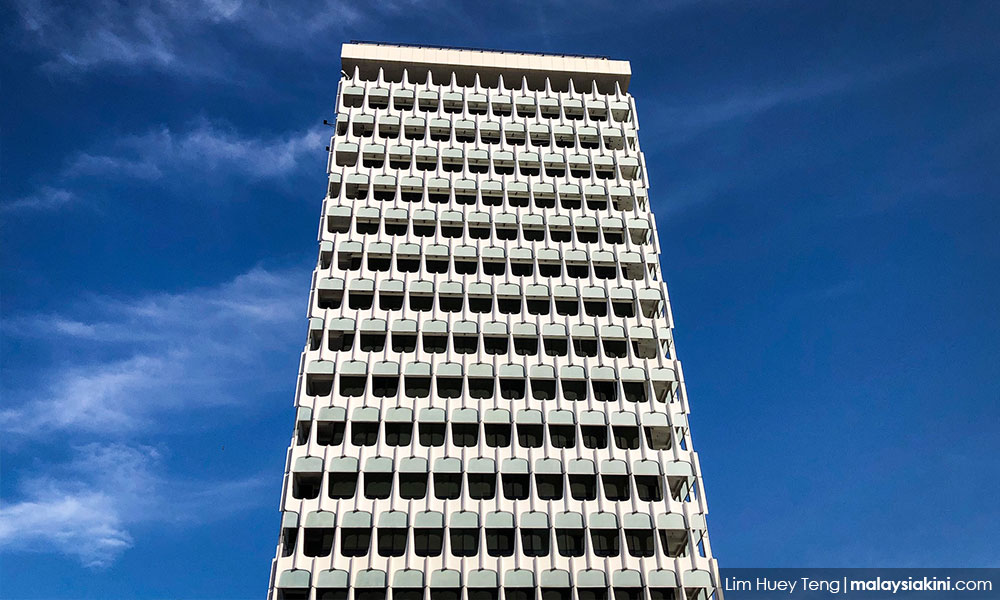
There have been engagements with civil society but no improvement in promised reform of repressive laws. The cabinet imposed a moratorium on draconian laws including the Sedition Act 1948 and Section 233 of CMA in October 2018. The moratorium was short-lived, and it was lifted in December 2018 following the Seafield temple fracas. Considering the efforts by civil society in contributing to institutional reform after GE14, the prime minister’s decision not to make the CEP report public is unacceptable and stinks of BN non-transparency.
Many lawyers have pointed out that the repeal or review of our laws that violate basic human rights can be expeditiously accomplished within the first 100 days of the new government. These include abolishing laws that allow detention without trial, namely, the Security Offences (Special Measures) Act 2012 (Sosma), the Prevention of Crime Act 1959 (Poca) and the Prevention of Terrorism Act (Pota) 2015. The new government is now reconsidering its initial pledge to abolish several contentious laws including the Sedition Act 1948, the Prevention of Crime Act (Poca) 1959, the Universities and University Colleges Act 1971, the Printing Presses and Publications (PPPA) Act 1984 and the National Security Council (NSC) Act 2016. This is totally unethical backtracking on the Harapan GE14 manifesto.
The capitulation by the Harapan government to the threats of far-right Malay supremacists over the ratification of Icerd in November 2018 has since been followed by the decision of the Education Ministry to maintain the matriculation quota for bumiputera at 90 percent. The NEP that was intended to end in 1990 continues as the "never-ending policy". It is not surprising when the prime minister himself heads a party that is only open to pribumi.
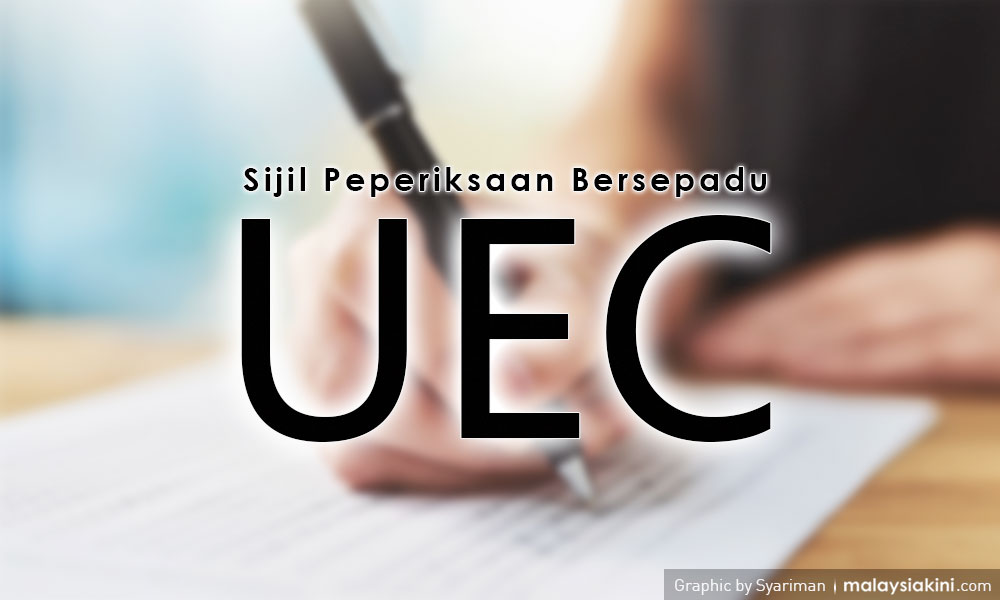
It is equally absurd to tell Malaysian independent Chinese secondary school graduates that their UEC certificate can only be recognised in five years’ time. The UEC certificate went unrecognised by BN for 61 years even though it has internationally proven its efficacy with thousands of graduates since 1975. This is a serious breach of promise of the Harapan GE14 manifesto since more than 80 percent of the Chinese voters voted for Harapan because of this promised reform.
Consequently, after a year of the new government, Malaysians who had supported the Pakatan Harapan administration at the 14th general election can only watch with growing despair at the reneging of the promises of reform that had roused the Malaysian electorate at the May 9, 2018, general election.
The lesson of the first year of the Harapan administration is that, as always, civil society needs to be ever vigilant to push for these reforms because the government of the day has shown it is dragging its feet and reneging on these election promises when they have the opportunity. Worse, economic, educational and other policies of the Harapan government since May 9 have shown that they are evolving into BN 2.0.
KUA KIA SOONG is Suaram adviser.
The views expressed here are those of the author/contributor and do not necessarily represent the views of Malaysiakini.
RM12.50 / month
- Unlimited access to award-winning journalism
- Comment and share your opinions on all our articles
- Gift interesting stories to your friends
- Tax deductable
